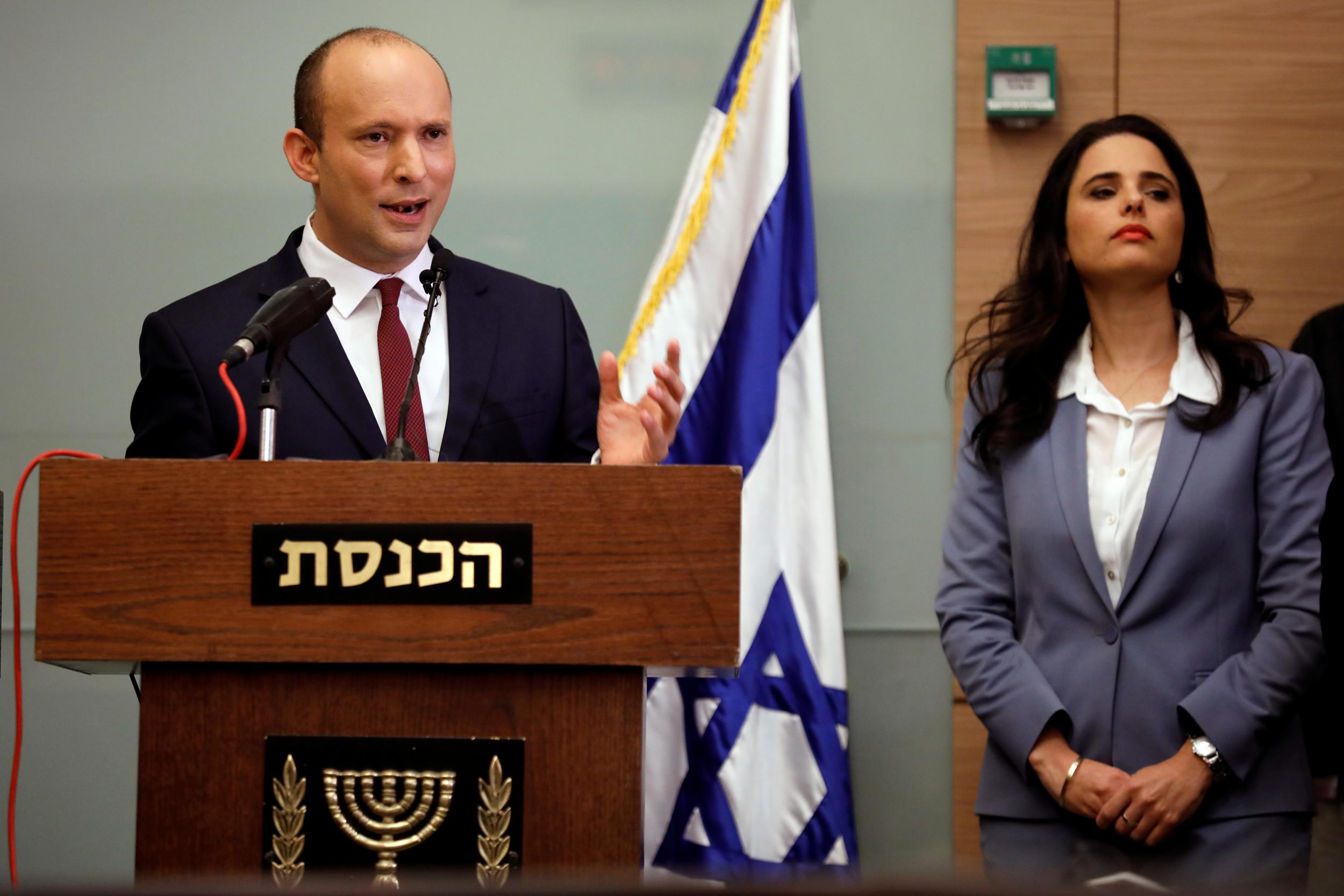Powerful Israeli minister rescues Netanyahu's government from collapse after Gaza truce crisis
Far-right education minister Naftali Bennett backs the prime minister – salvaging the Israeli government for now

Your support helps us to tell the story
From reproductive rights to climate change to Big Tech, The Independent is on the ground when the story is developing. Whether it's investigating the financials of Elon Musk's pro-Trump PAC or producing our latest documentary, 'The A Word', which shines a light on the American women fighting for reproductive rights, we know how important it is to parse out the facts from the messaging.
At such a critical moment in US history, we need reporters on the ground. Your donation allows us to keep sending journalists to speak to both sides of the story.
The Independent is trusted by Americans across the entire political spectrum. And unlike many other quality news outlets, we choose not to lock Americans out of our reporting and analysis with paywalls. We believe quality journalism should be available to everyone, paid for by those who can afford it.
Your support makes all the difference.A powerful Israeli minister seen as a potential leadership rival has said he will not quit Benjamin Netanyahu’s coalition despite differences over a truce in Gaza, in a dramatic turnaround that has dragged the government back from the brink of collapse.
The announcement by far-right education minister Naftali Bennett on Monday morning has salvaged Mr Netanyahu’s parliamentary alliance, which was left with a one-seat majority when the country’s defence minister Avigdor Lieberman quit last Wednesday, taking his party with him.
Members of Mr Bennett’s religious nationalist party, Jewish Home, had threatened to also pull their eight seats from the coalition unless Mr Bennett was handed the defence portfolio after Lieberman’s dramatic exit.
Instead, Mr Netanyahu kept the defence position for himself and in a stunning change of heart, Mr Bennett said he would give the premier time to correct the course on a range of issues.
“If the prime minister is serious in his intention … I am saying here to the prime minister we are removing at this moment all of our political demands and will help you in the huge mission of making Israel win again,” Mr Bennett said in a televised speech.
He did, however, criticise Mr Netanyahu’s recent policies saying “something bad is happening on the inside, including during the last decade in Netanyahu’s governments – the state of Israel stopped winning”.
Mr Bennett acknowledged he may “pay the political price” for backing down from earlier ultimatums.
“It’s better that the prime minister beats me in a political battle than [Hamas leader Ismail] Haniya beats Israel,” he concluded.
Israel’s justice minister Ayelet Shaked, who attended the same press conference, backed Mr Bennett’s statement.
”We will not further strengthen the political win that Lieberman gave to terrorist organisations,” she said.
Sources within the Jewish Home party who are close to Mr Bennett told The Independent that his decision was dependent on the prime minister changing his “defence policy and restoring the deterrence of Israel”.
“The prime minister has taken that on – he said he would do so. We will stand by his assertion to do so,” the official said.
Mr Bennett’s comments followed an impassioned address to the nation on Sunday night by the prime minister who announced he would retain the defence portfolio for now and seek to convince coalition partners to remain in the government.
He said calling early elections would be “irresponsible” due to a complicated security situation facing the country.
“The security of the country is above politics,” he added.
The Israeli leader is not out of the woods yet though, as he will struggle to rule the country with such a razor-thin majority. He still could face a vote of no confidence in the Knesset even if his main coalition partners stick by him.
The current crisis was triggered last Wednesday when defence minister Avigdor Lieberman resigned and abandoned the coalition over an Egypt-brokered ceasefire deal with Hamas, the militant group that runs Gaza.
With the five seats of Lieberman’s Yisrael Beiteinu party out of the coalition, Netanyahu was left clinging onto power with just 61 of the 120-seat Knesset prompting speculation early elections had become inevitable, at a time when the prime minister’s popularity was at an all-time low.
Elections are not due until November 2019.

Mr Netanyahu had also come under fire from Israeli citizens living along the border with Gaza who were fed up of being pummelled by a barrage of rockets and called for tougher action including airstrikes on Hamas positions in the besieged strip.
Last week Gaza militants fired 460 rockets over the period of 24 hours, the heaviest bombardment since the 2014 war. The cross-border fire was launched in retaliation for a botched Israeli intelligence raid into southern Gaza which ended in a firefight that left seven Palestinians, including Hamas commanders, and an Israeli lieutenant colonel dead.
The Israeli army said they had attacked over 150 targets in Gaza with airstrikes.
An Israeli poll published after the ceasefire found 74 percent of respondents were unhappy with Netanyahu’s handling of the escalation with Gaza and its Islamist rulers Hamas.
Join our commenting forum
Join thought-provoking conversations, follow other Independent readers and see their replies
Comments